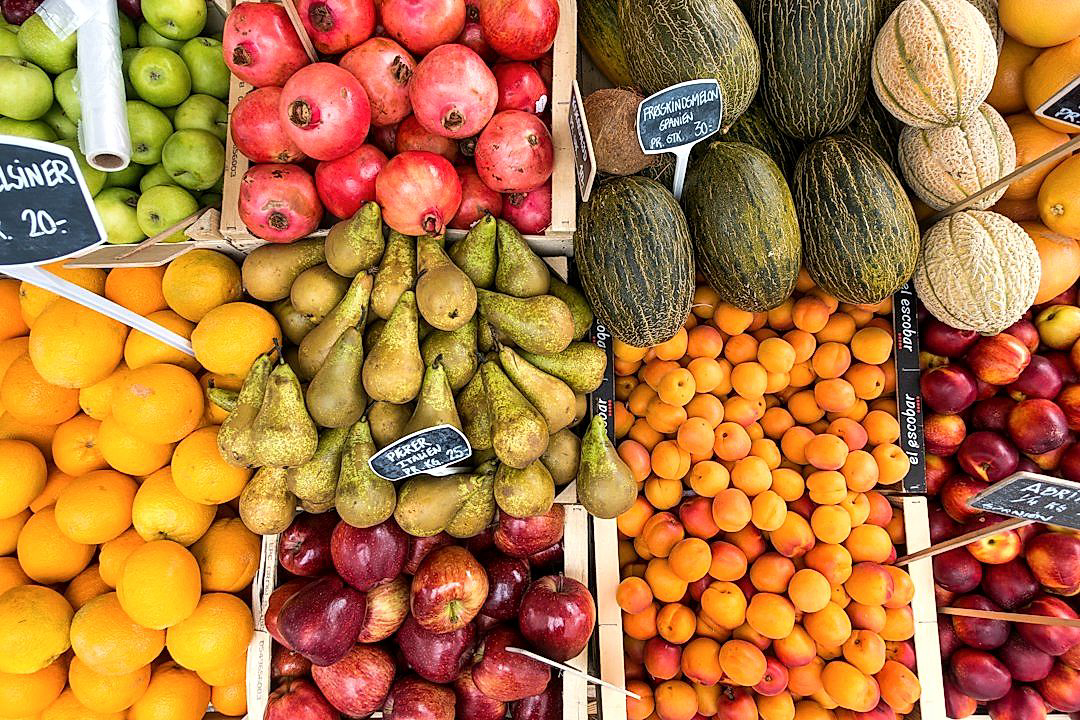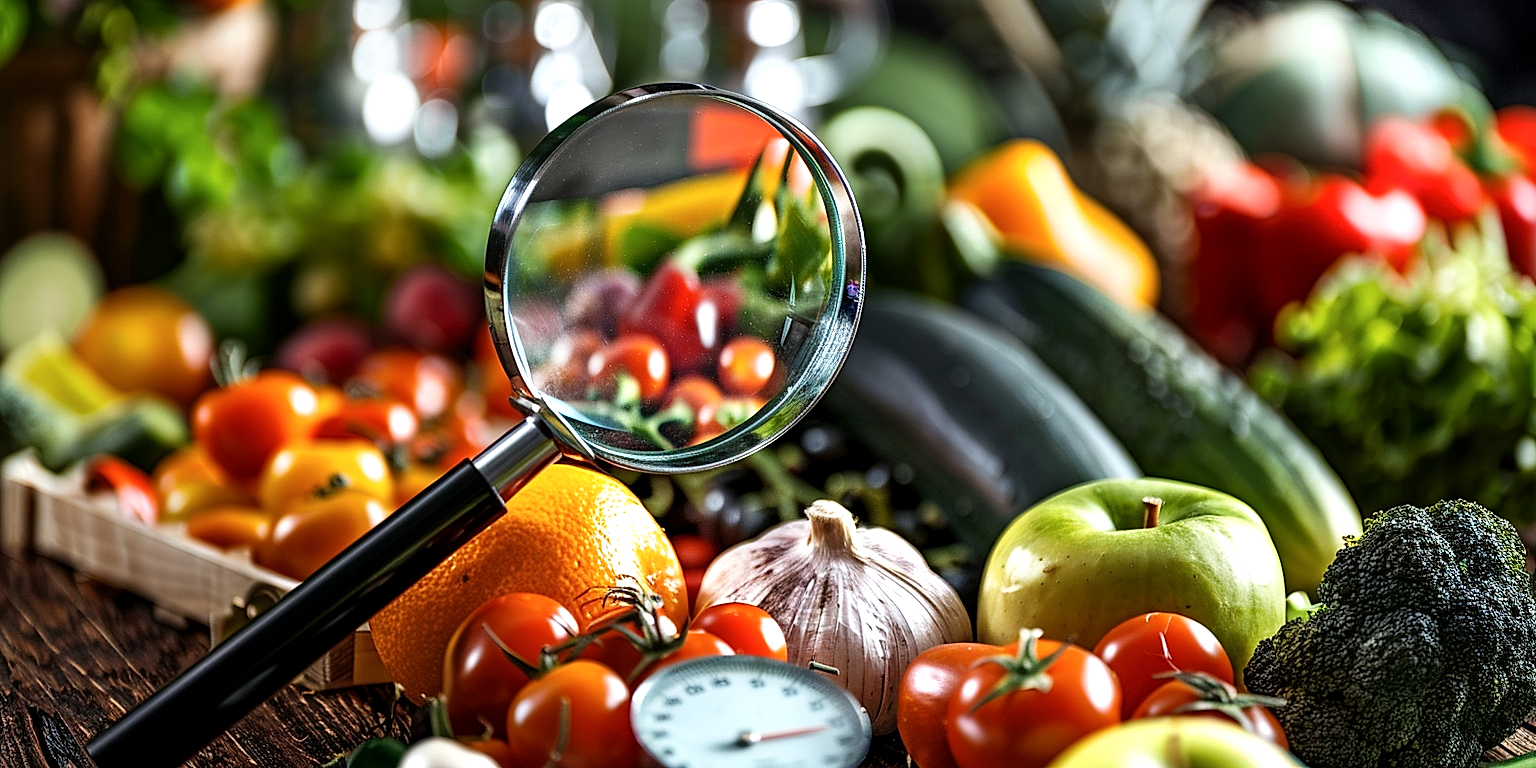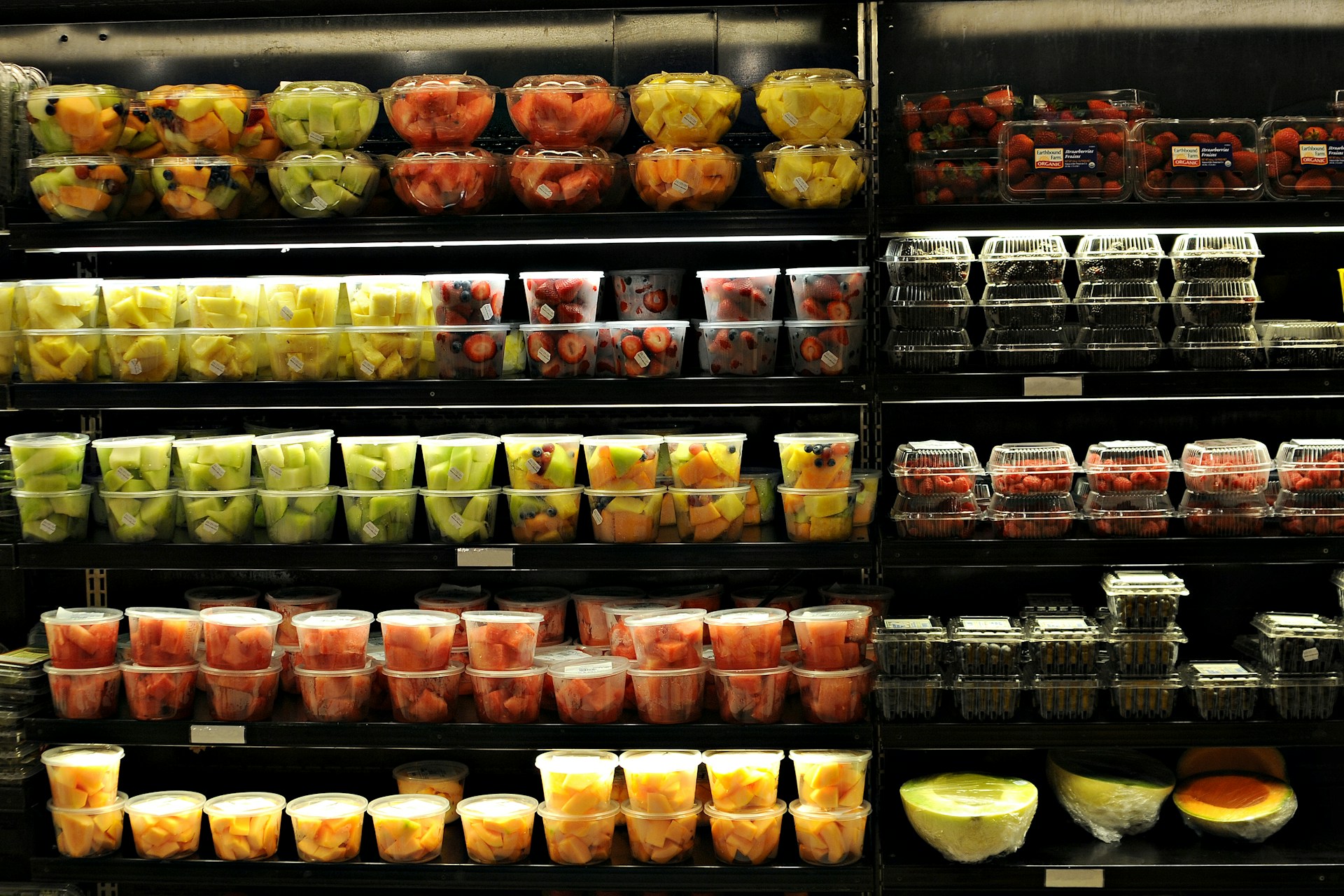Ensuring safety in the food supply chain is paramount in the retail business, particularly where fresh produce is concerned.
As sophisticated as our logistics and distribution systems may be, they stand little chance against contamination issues if proper procedures aren’t in place.
AN adherence to strict food safety compliance standards is essential in order to protect both customers and businesses.
Not only can lapses in these protocols lead to illness outbreaks, they can also result in significant damage to a company’s reputation.
To avoid such pitfalls, it’s vital to adopt and uphold best practices in food safety.
This article provides an insightful overview into such practices that are currently reshaping the landscape of produce retail.
Best Practices For Food Safety Compliance In Produce Retail
1. Regularly Clean and Sanitize Work Surfaces
The first step towards ensuring food safety compliance in any produce retail environment is to make a commitment to regularly clean and sanitize work surfaces.
Work surfaces include cutting boards, countertops, knives, and other tools. All of these surfaces come into direct contact with the produce and therefore can significantly influence the spread of foodborne pathogens.
It is of crucial importance to maintain a rigorous cleaning routine to prevent these surfaces from being a source of contamination.
In accordance with food safety guidelines, surfaces should be cleaned after each use and thoroughly sanitized at the end of the day.
The process of sanitizing goes beyond basic cleaning, as it requires the use of specific chemicals or high-temperature processes designed to kill harmful bacteria or other microorganisms.
High touch areas such as door handles and railings should not be overlooked in this cleaning process, as they can also serve as reservoirs for disease-causing pathogens.
It’s important to always use approved sanitizing solutions at the correct concentration, as using too much can lead to chemical contamination, while using too little may not effectively kill microorganisms.
Furthermore, surfaces should be allowed to air dry after sanitizing to ensure the complete death of any lingering bacteria.
Ensuring appropriate cleaning materials, such as sponges and towels, avoid cross-contamination is also a key aspect of maintaining clean work surfaces.
For example, sponges should be regularly replaced and never used across different types of produce.
Towels used for drying must be kept clean and changed frequently to prevent them from becoming a source of infection themselves.
Also, it’s essential to promptly clean any spills or food remnants that may accumulate throughout the day to prevent further cross-contamination.
By diligently following these practices, it offers a robust first-line defense against foodborne illnesses mould and other forms of contamination.
Maintaining a clean environment not only ensures that the produce sold is of the highest quality, but it also reinforces customer confidence in the commitment to food safety.
Regular cleaning and sanitizing practices are thus fundamental to the success of a produce retailer’s food safety compliance strategy.
2. Maintain Proper Storage and Temperature Control
Maintaining proper storage and temperature control is a crucial aspect of food safety compliance in produce retail.
This involves ensuring that all produce is stored in an environment that is clean, dry, and at the right temperature to prevent spoilage and bacterial growth.
Produce should never be stored on the floor where it can easily be contaminated by pests or dirty water.
Proper storage and temperature control is essential not only for food safety but also for maintaining the quality and freshness of produce.
Each type of produce has its optimum storage temperature which must be adhered to.
For instance, tropical fruits like bananas and pineapples prefer warmer temperatures, while root vegetables like potatoes and onions require cool, dark storage conditions.
Ensuring the right temperature conditions extends the shelf-life of the produce and maintains its nutritional value.
Part of maintaining proper storage involves regular checks of refrigeration and freezer units.
If the temperature fluctuates or goes above the recommended temperature range, it could lead to the growth of harmful bacteria that can taint the produce and potentially cause foodborne illnesses.
Therefore, having a daily log for temperatures and regularly servicing cooling equipment is important.
Taking these steps helps identify any potential issues early and prevent food safety incidents.
You should consider having a backup plan in case of equipment failure to ensure continuous temperature control.
Things may not always go as planned, and having alternative storage options could save your business from massive losses and reputational damage.
And lastly, produce washing and processing areas should also be set at the right temperature to prevent the growth of pathogens.
Moreover, the importance of maintaining proper storage and temperature control in a produce retail setting cannot be overstated, as it directly impacts the safety and well-being of consumers.
3. Practice appropriate hand hygiene
The practice of appropriate hand hygiene forms a critical cornerstone in ensuring food safety compliance in produce retail.
Hand hygiene, specifically, is crucial in retail environments where employees frequently handle fresh and ready-to-eat products.
To effectively practice appropriate hand hygiene, employees should wash their hands before starting work, after using the restroom, and after any activity that could contaminate their hands.
Additionally, staff should be trained to correctly use disposable gloves and change them frequently to avoid cross-contamination.
This training should also include understanding the severe consequences of poor hand hygiene, including potential for foodborne illness outbreaks.
Furthermore, easily accessible handwashing stations should be provided to encourage frequent handwashing.
These stations should be equipped with clean water, soap, disposable towels, and a waste container, which are all elements for practicing proper hand hygiene.
Signage should also be put up, reminding staff about the importance of hand hygiene and detailing the correct procedure for effective handwashing.
Moreover, hand sanitizers with a minimum of 60% alcohol can serve as an additional measure, but they should not replace washing with soap and water.
Regular hand hygiene audits can be conducted to ensure that the standards are being met consistently.
The results of these audits can provide meaningful insights into the areas that need improvement and should lead to specific action plans.
Employees should be given feedback about these audits, emphasizing how to improve their hand hygiene practices and achieving food safety compliance.
This continual reinforcement of appropriate hand hygiene practices can result in greater mindfulness and consistent application among staff.
Despite being simple on the face of it, appropriate hand hygiene is a powerful tool in the fight against foodborne diseases and is a bedrock of food safety compliance in produce retail.
Investing in robust hand hygiene practices is not only necessary for food safety, but it also fosters trust with customers, who can see that their health and wellbeing is a priority.
4. Ensure Proper Food Handling and Preparation
One of the fundamental principles behind maintaining food safety compliance in produce retail is ensuring proper handling and food preparation.
Both the quality and safety of food items are dependent on how they are handled from farm to table.
Handling constitutes anything from the initial harvest of the produce, to its washing, cutting, and packaging, through to its final sale to consumers.
There is a critical need for all retail staff to understand the importance of correct food handling practices to prevent contamination and spoilage.
By adhering to practices such as using clean and sanitized equipment, wearing adequate protective clothing, and being mindful they do not handle food when they are ill, retail staff can significantly contribute to food safety in their establishments.
The same degree of care must be extended to food preparation areas as well, which should always be maintained in a clean and sanitized condition to prevent cross-contamination.
Another important aspect of handling is temperature control, such as refrigeration for certain types of produce, to ensure the food does not spoil or grow harmful bacteria.
Taking care to avoid foodborne pathogens from contaminating produce during preparation is critical in maintaining food safety compliance.
Again, simple hygiene practices such as regular hand washing, using clean utensils and equipment, and separating raw and cooked foods can make a significant difference.
Food retail establishments should also pay close attention to the allergen management and ensure that allergen-containing products are correctly labeled and separated from other produce.
Correct food handling also involves ensuring that expiry dates are adhered to, and any produce past its sell-by date is not sold to consumers.
A proper stock rotation system, such as first-in, first-out (FIFO), can also help retail establishments minimize the risk of selling expired or spoiled produce.
Lastly, proper food handling is incomplete without the consideration of waste management, and produce retailers need to have adequate systems in place for safe and effective waste disposal.
By following these food handling and preparation practices, produce retailers can ensure they not only maintain compliance with food safety regulations but also provide their customers with the best quality and safety of produce.
Remember, good food safety practices are an ongoing process, and not a one-time effort.
5. Regularly train staff on food safety
Training staff on food safety is a key aspect in maintaining food safety compliance in a produce retail environment.
Without proper training, employees may inadvertently contribute to the spread of foodborne illnesses through poor handling practices.
To prevent this, it’s important that employers invest in comprehensive, routine food safety training.
This will ensure every member of staff has a sound understanding of the necessary precautions needed to prevent the spread of foodborne diseases.
For instance, employees should undergo training on the importance of washing their hands before and after handling food.
Additionally, employees should be taught the correct techniques for storing and handling different types of produce properly to prevent cross-contamination.
The more knowledge and understanding employees have about proper food handling, the less likelihood there is of preventable foodborne illnesses occurring.
Other important aspects that need to be part of the training include understanding the right temperatures for storing different types of produce, monitoring and controlling pests, waste disposal, and cleaning of work surfaces and utensils.
Employees should also be trained on the critical aspect of identifying and responding to potential food safety issues in a proactive and decisive manner.
Regular refreshers and updates are equally important in food safety training.
This is because food safety protocols can change over time, and it’s crucial to ensure staff are always up-to-date with latest guidelines.
Produce retail environments also need an effective system in place for assessing and refining the efficacy of food safety training.
Feedback from the staff undergoing the training, observation of food handling practices, and monitoring of food safety incidents can provide valuable insights for improving training methods and content.
The main goal of such training is to achieve comprehensive compliance to food safety regulations and reduce risk of foodborne illnesses, ensuring the health and well-being of customers who patronize the produce retail store.
Overall, the significance of regular food safety training for staff cannot be overstated in maintaining high standards of food safety compliance in a produce retail environment.
6. Conduct Routine Health Inspections
One of the key elements of food safety compliance in produce retail is the conduction of routine health inspections.
The main purpose of these inspections is to guarantee that food handling, storage, and preparation practices are in compliance with established safety standards.
All food establishments, including produce retailers, are required by law to undergo routine health inspections to protect public health.
These inspections are typically conducted by trained and accredited public health officials.
The frequency and focus of health inspections can vary depending on the nature of the food business, previous inspection results, and other potential risk factors.
Unannounced health inspections are often conducted to ensure that food safety practices are being followed at all times, not just in anticipation of an inspection.
A typical health inspection involves a thorough examination of the premises, equipment, and food safety practices in place.
During these inspections, health officials observe how food is stored, prepared, and served, if staff members are practicing proper hygiene, if the establishment is clean and pest-free, and if all food safety protocols are being adhered to.
If any violations are observed during an inspection, the business is usually given a certain period to correct them.
In severe cases where there is an immediate threat to public health, the business may be temporarily shut down until the issues are rectified.
Routine health inspections also serve as an opportunity for businesses to receive important feedback and advice on their food safety practices.
This can be extremely beneficial for continuously improving and maintaining high standards of food safety in produce retail.
From an operational standpoint, consistently passing health inspections can substantially reduce the likelihood of foodborne illness outbreaks which can have disastrous effects on a business, including financial loss, damaged reputation, and even legal consequences.
So it’s imperative to take these inspections seriously and strive for compliance at all times.
Performing self-inspections between official ones can also help maintain high food safety standards and prepare for the actual health inspections.
In sum, routine health inspections play a crucial role in ensuring food safety in produce retail, and businesses should view them not as a burden, but a means of enhancing the quality and safety of their offerings.
7. Implement pest control measures
The presence of pests is a major concern in all areas of the food industry, including produce retail.
To ensure food safety compliance, it is critical to have effective pest control measures in place.
Pests can carry a myriad of diseases that can contaminate produce, posing a serious health risk.
Moreover, the presence of pests can lead to the destruction of produce and loss of revenue.
Therefore, it is crucial to adopt a proactive approach towards managing pests in the retail environment.
This includes regular inspections to detect any signs of infestation, such as the presence of droppings or damaged packaging.
Preventative measures should also be taken, which can include sealing off potential entry points and maintaining cleanliness.
A partnership with a professional pest control service can provide expertise and regular maintenance to keep pests at bay.
When not handled properly, retail environments can provide the perfect conditions for pests to thrive.
Any food or produce display areas should be designed and maintained to minimize the chances of pest infestation.
Produce should be stored off the floor and away from walls to reduce possible hiding places for pests.
It is also important to properly handle and dispose of waste products and maintain drain cleanliness to further discourage pest activity.
Keep in mind that different types of pests require different control strategies.
For instance, the methods used to deter rodents might not be effective against insects.
Continuous education and training on pest control measures can empower your staff to contribute effectively to maintaining a pest-free environment.
Remember, the best pest control approach is always preventive rather than reactive.
With the right pest control measures, produce retailers can assure customers of the safety and quality of their products, thereby building trust and loyalty.
The Bottom Line
Having put into practice the outlined strategies, overall food safety in any kitchen – whether commercial or residential – can be enhanced significantly.
Ensuring the maintenance of hygiene, controlling storage and temperatures, observing proper food handling, and conducting health inspections are critical factors that can mitigate the risk of food contamination and poisoning.
The implementation of pest control measures, along with continuing food safety training for staff, further strengthens this protection.
By upholding these standards, we safeguard the health of individuals at risk and, ultimately, maintain the trust and satisfaction of those we serve in this essential sector.




